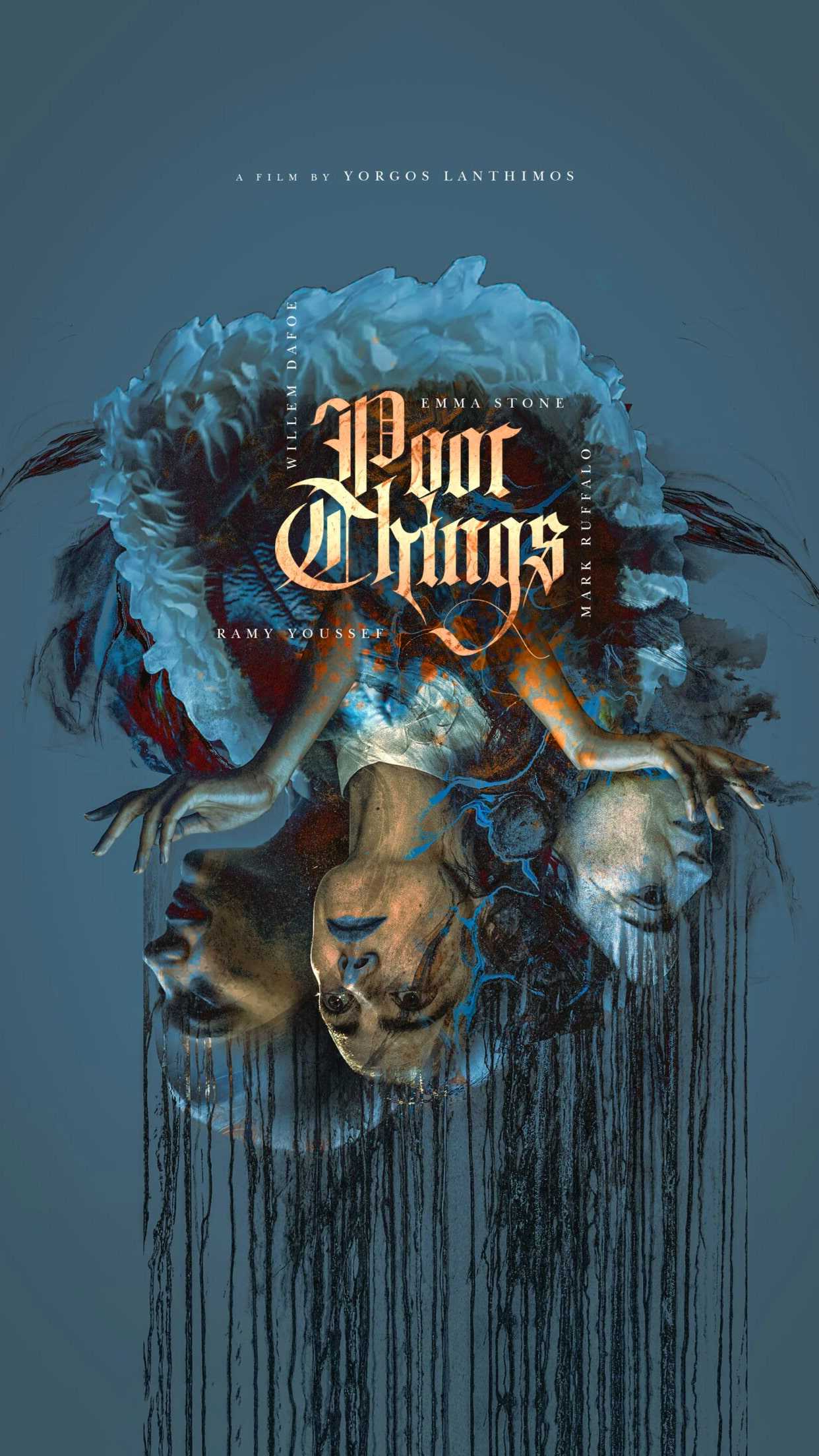Poor Things: A Deep Dive Into The Struggles And Triumphs
Life ain't always sunshine and rainbows, y'all. Poor things is a term that resonates with so many of us who've faced tough times, adversity, or just plain ol' bad luck. It's not just about money—it's about the struggles, the heartaches, and the fight to keep going when the world feels like it's against you. Whether you're dealing with financial woes, emotional baggage, or societal challenges, this term hits close to home for a lot of people.
Now, before we dive deep into the nitty-gritty, let's talk about why poor things matter. It's not just a phrase—it's a reflection of reality for millions around the globe. The struggles that come with being a "poor thing" can shape who we are, how we think, and how we interact with the world. This isn't just about pity—it's about understanding, empathy, and finding ways to rise above it all.
So, buckle up, folks. We're about to explore the world of poor things, from its roots to its impact on society, and everything in between. This ain't just a story—it's a journey, and I'm glad you're here to be a part of it.
- Dog The Bounty Hunter Wife The Fascinating Life And Journey
- Bowling For Soup The Ultimate Guide To The Rock Band That Kept Us Laughing And Singing
What Exactly Are Poor Things?
Alright, let's break it down. Poor things refer to individuals or situations where resources—whether financial, emotional, or social—are scarce. It's not just about being broke; it's about feeling stuck, overwhelmed, or undervalued. Think about it: someone struggling to pay rent, a family dealing with food insecurity, or even a community facing systemic inequality—all these fall under the umbrella of poor things.
Now, here's the kicker: being a poor thing doesn't mean you're weak. In fact, it often means the opposite. It takes strength, resilience, and determination to keep going when life throws curveballs your way. But let's not sugarcoat it—it's tough, real tough. And that's why understanding the root causes and potential solutions is so important.
Key Characteristics of Poor Things
- Limited access to resources
- Financial instability
- Emotional strain and stress
- Social isolation or exclusion
- Lack of opportunities for growth
Causes Behind Poor Things
So, what causes someone to become a poor thing? It's not as simple as "not having money." There's a whole web of factors at play here. Economic inequality, lack of education, systemic discrimination, and even personal circumstances can all contribute to this reality. Let's take a closer look.
- Shark Attack Indonesia The Untold Stories And How To Stay Safe
- Logic Rapper The Voice Of A Generation That Needed To Be Heard
For starters, the global economic system isn't exactly fair. Wealth distribution is skewed, leaving many without a fair shot at success. Then there's the education gap—without access to quality education, it's hard to break the cycle of poverty. Add to that the social stigma attached to being a poor thing, and you've got a recipe for long-term struggle.
Systemic Issues at Play
Now, let's talk about the bigger picture. Systemic issues like racism, sexism, and classism play a huge role in creating and perpetuating poor things. These aren't just buzzwords—they're real problems that affect people's lives every single day. For example, women and minorities often face barriers to entry in high-paying jobs, making it harder for them to climb the economic ladder.
The Impact on Society
Being a poor thing isn't just an individual issue—it affects society as a whole. When large segments of the population are struggling, it creates ripple effects that impact everyone. Crime rates can rise, social cohesion can weaken, and the overall quality of life can decline. It's a vicious cycle that's hard to break.
But here's the thing: it doesn't have to be this way. By addressing the root causes of poor things and implementing policies that promote equality and opportunity, we can create a better, more just society. It won't happen overnight, but it's definitely possible.
Statistical Insights
According to the World Bank, over 700 million people worldwide live in extreme poverty. That's a staggering number, and it highlights the magnitude of the problem. In the United States alone, the poverty rate hovers around 10%, with certain communities experiencing much higher rates. These numbers aren't just statistics—they represent real people with real struggles.
Breaking the Cycle of Poor Things
So, how do we break the cycle of poor things? It starts with education. Providing access to quality education for all, regardless of background, is one of the most effective ways to combat poverty. But it doesn't stop there. We also need to address issues like affordable housing, healthcare, and job opportunities.
Community programs, government initiatives, and private sector involvement can all play a role in lifting people out of poverty. It's about creating a safety net that catches people when they fall and gives them the tools they need to succeed.
Success Stories
There are countless stories of individuals and communities overcoming the odds and breaking free from the cycle of poor things. Take Malala Yousafzai, for example. Growing up in a war-torn region of Pakistan, she faced immense challenges but went on to become a global advocate for education. Her story is a testament to the power of resilience and determination.
Empathy and Understanding
One of the most important things we can do is cultivate empathy and understanding. Too often, poor things are stigmatized or judged harshly by those who don't understand their circumstances. Instead of pointing fingers, we should be offering support and solidarity.
This doesn't mean enabling or excusing bad behavior—it means recognizing that everyone deserves a fair chance. By fostering a culture of empathy, we can create a more compassionate and inclusive society.
How You Can Help
There are plenty of ways you can make a difference in the lives of poor things. Volunteering your time, donating to reputable charities, and advocating for policy changes are just a few examples. Even small actions, like offering a kind word or a helping hand, can have a big impact.
Conclusion: The Path Forward
In conclusion, poor things are a reality for millions of people around the world. But they don't have to define us. By understanding the causes, addressing the issues, and fostering empathy, we can create a brighter future for everyone. Remember, every little bit helps, and together, we can make a difference.
So, what are you waiting for? Get out there and start making a change. Share this article, leave a comment, or tell your friends about the importance of supporting those who are struggling. The world needs more kindness, compassion, and action—and you can be a part of that.
Table of Contents
- Poor Things: A Deep Dive Into the Struggles and Triumphs
- What Exactly Are Poor Things?
- Key Characteristics of Poor Things
- Causes Behind Poor Things
- Systemic Issues at Play
- The Impact on Society
- Statistical Insights
- Breaking the Cycle of Poor Things
- Success Stories
- Empathy and Understanding
- How You Can Help
- Conclusion: The Path Forward



Detail Author:
- Name : Cristopher Frami
- Username : fharber
- Email : darien.bruen@franecki.com
- Birthdate : 1988-07-02
- Address : 9273 Parker Estates Suite 839 West Codybury, VT 72006
- Phone : 919.449.0940
- Company : Pollich-Watsica
- Job : Word Processors and Typist
- Bio : Ut quaerat libero consectetur voluptatem atque iure. Odit sunt nemo nemo nesciunt aspernatur. Ad dolores repellendus qui fuga facilis.
Socials
instagram:
- url : https://instagram.com/jorge_xx
- username : jorge_xx
- bio : Perspiciatis qui qui sint. Ut nisi quo qui a quo.
- followers : 3999
- following : 156
tiktok:
- url : https://tiktok.com/@jorge6902
- username : jorge6902
- bio : Odio aperiam dolor quibusdam praesentium molestiae porro.
- followers : 1236
- following : 1696